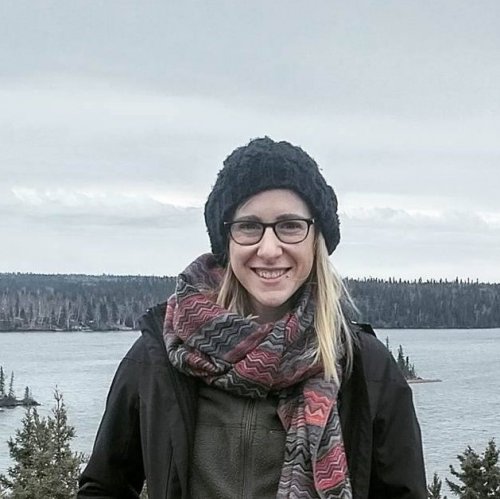The Canadian Community Economic Development Network is excited to announce our third invitation for organizational members to apply to employ youth through the CreateAction: Inclusive Social Innovation work experience program. Not already a member? Check out how you can join the network (including barrier-free options) by visiting CCEDNet’s membership page.
About CreateAction
The purpose of CreateAction is to provide employment and career-relevant learning opportunities to youth not in education, employment or training (NEET) AND facing barriers to employment. These placements will take place under the terms and conditions of a contribution agreement between the Canadian CED Network and Employment and Social Development Canada as part of the Youth Employment and Skills Strategy.
The Canadian Community Economic Development Network (CCEDNet) and the National Association of Friendship Centres (NAFC) are working in partnership to deliver the CreateAction program with funding by Employment and Social Development Canada and with evaluation support from the Social Research and Demonstration Corporation.
All work experience placements will support youth to further their career interests in community economic development, social innovation and/or off-reserve Indigenous service delivery infrastructure and provision of culturally enhanced programs and services to urban Indigenous residents.
This call for proposals is for placements taking place from January 10 to July 8, 2022 (26 weeks). The CreateAction program will provide to youth a wage of $19.50/hour for 37.5 hours/week. Employers may volunteer to increase their youth’s wages at their own expense. The deadline for submitting applications is October 22, 2021 at 11:59pm Pacific Time.
Employers will be selected according to the following criteria:
- commitment to supporting and accommodating the needs of youth facing barriers to employment and a willingness to increase organizational capacity accordingly;
- a commitment to the principle that the CreateAction program is first and foremost a program designed to support youth facing barriers to employment;
- a willingness to hire a youth who is a best fit for the program goals;
- have a position available that aligns with the level of a youth facing barriers to employment, and be willing to adapt the position based on the skills/abilities of the engaged youth;
- commitment and organizational capacity to assist youth with their daily work, providing coaching and career development support;
- geographic diversity (e.g. rural, remote, Indigenous, northern, francophone communities outside of Quebec, and urban disadvantaged communities with recent immigrant populations);
- demonstrated ability to recruit and support people who are Indigenous, Black, racialized, LGBTQ2S+, newcomers to Canada, francophone, and/or live with disability;
- commitment to participate in a peer support network of employers;
- dedication to supporting the youth in leveraging the work experience into full-time employment or study;
- ability to recruit and support youth not in employment, education or training (NEET);
- ability to recruit and support youth from diverse backgrounds with barriers to employment;
- capacity to adequately support skills development for youth, with additional support from the CreateAction partners;
- relevance of proposed work experience to community economic development, social innovation, and/or off-reserve Indigenous service delivery infrastructure and provision of culturally enhanced programs and services to urban Indigenous residents (visit NAFC’s website).
Priority will be given to organizations that provide social supports for adults or youth as part of their mandate (e.g. organizations serving or supporting newcomers, refugees, survivors of violence or people escaping abuse, formerly incarcerated people, and people experiencing/overcoming mental health challenges, substance use disorders, precarious housing, etc).
Employers will:
- offer a meaningful 26-week employment opportunity;
- actively seek out youth candidates from diverse backgrounds with barriers to employment;
- hire a youth who is a best fit for the CreateAction program;
- provide youth with an orientation to the employer;
- develop, at the beginning of the placement, a Learning Plan with youth;
- develop and implement a plan to provide sufficient support services to enable the youth to succeed at their placement;
- provide sufficient resources and time to effectively supervise and mentor work experience youth;
- commit to weekly meetings with youth to support their learning objectives;
- set aside a minimum of:
- six (6) hours per month for the work experience youth to participate in peer learning activities, and
- three (3) working days for the youth to participate in an in-person or online learning event.
- provide, with support from the CreateAction program, career advice, regular feedback and guidance to youth and assist youth in laddering into further career relevant employment or education at the end of the placement;
- provide youth with all reasonably required working materials;
- contact the Canadian CED Network for support and guidance if ever there are issues that you or the youth are experiencing and whenever the youth might be absent from work;
- participate in three (3) or more employer national virtual sessions with the Canadian CED Network and other selected organizations;
- work with the CreateAction program evaluators on evaluation related activities, such as activities involved with a midterm check-in and a final evaluation;
- identify candidates by December 17, in order for work experience youth to start placements on January 10;
- become a member of the Canadian CED Network after selection, if not already a member.
CreateAction partners (CCEDNet, NAFC and SRDC) will:
- pay youth directly at a rate of $19.50/hour (though employers are welcome to top up the amount) and cover MERCs (mandatory employment related costs);
- assist employers with the necessary advice and support to carry out the activities and realize the objectives of the program;
- provide, in concert with employers, tailored wraparound supports for youth including supporting the capacity of employers in their ability to provide social supports for youth;
- provide a robust peer learning and mentoring program for work experience youth’s ongoing professional development for the duration of the placement;
- coordinate weekly drop-in video conference calls for youth to learn, share experiences, and to network;
- host a virtual platform (Slack) for youth to connect and share experiences throughout the CreateAction program;
- coordinate three (3) video conference calls for employers to share experiences a
- d to network;
- work with employers to offer mediation support or resolve disputes arising with work experience youth;
- work closely with employers in the event of crisis or conflict with work experience placement, including any decision to terminate the work experience placement as a last resort;
- conduct baseline, end of placement, and 3-month follow-up surveys with youth and an end of placement survey for employers to monitor progress, track youth learning, and capture youth outcomes, career expectations and satisfaction.
To participate in the CreateAction program, eligible youth must be:
- not in education, employment or training (NEET);
- a youth experiencing barriers to employment;
- between 15 and 30 years of age (inclusive) at start of placement;
- Canadian citizens, permanent residents, or protected persons as defined by the Immigration and Refugee Protection Act;
- legally entitled to work in Canada;
- legally entitled to work according to the relevant provincial/territorial legislation and regulations.
How to apply?
Complete an application online here
If you require an offline application, please contact Matthew Thompson at the coordinates below. The deadline for submitting applications is October 22, 2021, at 11:59pm Pacific Time.
Youth interested in the program should apply directly to the employers. The successful employers will be announced on the Canadian CED Network’s website.
For more information, please contact Matthew Thompson, Director of Engagement, or Andri Mulia, Program and Engagement Manager, at .







 CED approaches with a strong commitment to democratic processes create the most relevant, resilient, adaptive, equitable, and effective strategies for communities to benefit and thrive. Similarly, democracy at a macro level puts power in the hands of people, fostering policies and decision-making that are more relevant to our communities and our lives.
CED approaches with a strong commitment to democratic processes create the most relevant, resilient, adaptive, equitable, and effective strategies for communities to benefit and thrive. Similarly, democracy at a macro level puts power in the hands of people, fostering policies and decision-making that are more relevant to our communities and our lives. Armed with passion and a unique vision for women’s equity in Canada, Rosalind Lockyer witnessed first-hand, the discrepancies in support between men and women on their journeys to achieving business success. She founded the PARO Centre for Women’s Enterprise in 1995 and it has become a one-of-a-kind organization that has since supported 22,003 women in Ontario to achieve their business dreams. Over 27 years, PARO’s programs have expanded phenomenally, allowing for the growth of the team and the reach of the organization, which now boasts over 180 Peer Lending Circles in Ontario, categorizing the PARO Circle Network the world’s largest women’s Peer Lending Circle conglomerate. As an organization that now operates Ontario-wide, Rosalind Lockyer has led PARO into new dimensions, leading the way for other organizations to better support women entrepreneurs. As a leader, a pioneer and a trailblazer, Rosalind has guided countless women toward self-sufficiency, resilience, incomparable inspiration and true family-style support system between PARO partners, stakeholders, staff and clients.
Armed with passion and a unique vision for women’s equity in Canada, Rosalind Lockyer witnessed first-hand, the discrepancies in support between men and women on their journeys to achieving business success. She founded the PARO Centre for Women’s Enterprise in 1995 and it has become a one-of-a-kind organization that has since supported 22,003 women in Ontario to achieve their business dreams. Over 27 years, PARO’s programs have expanded phenomenally, allowing for the growth of the team and the reach of the organization, which now boasts over 180 Peer Lending Circles in Ontario, categorizing the PARO Circle Network the world’s largest women’s Peer Lending Circle conglomerate. As an organization that now operates Ontario-wide, Rosalind Lockyer has led PARO into new dimensions, leading the way for other organizations to better support women entrepreneurs. As a leader, a pioneer and a trailblazer, Rosalind has guided countless women toward self-sufficiency, resilience, incomparable inspiration and true family-style support system between PARO partners, stakeholders, staff and clients. 

 Fireweed, multi-stakeholder community service cooperative of both food consumers and producers, is dedicated to creating a more stable market for locally, sustainably, and ethically produced food in Manitoba. Their mission is to reduce barriers to, and increase participation in, the local food system for all people from producers to eaters.
Fireweed, multi-stakeholder community service cooperative of both food consumers and producers, is dedicated to creating a more stable market for locally, sustainably, and ethically produced food in Manitoba. Their mission is to reduce barriers to, and increase participation in, the local food system for all people from producers to eaters. Situated in the west end of Winnipeg, the West Central Women’s Resource Centre (WCWRC) empowers women, families, and the community to move from where they are to where they want to be. WCWRC integrates CED principles, action research, collaboration and public policy change elements across their work while providing programs focused on housing, food, employment, child care, essential needs, Indigenous healing and newcomer settlement. With a unique approach to mentorship – focusing on internal empowerment, the centre helps recipients of services transition as they move from a position of receiving services to leading social change efforts including leading and influencing the center itself.
Situated in the west end of Winnipeg, the West Central Women’s Resource Centre (WCWRC) empowers women, families, and the community to move from where they are to where they want to be. WCWRC integrates CED principles, action research, collaboration and public policy change elements across their work while providing programs focused on housing, food, employment, child care, essential needs, Indigenous healing and newcomer settlement. With a unique approach to mentorship – focusing on internal empowerment, the centre helps recipients of services transition as they move from a position of receiving services to leading social change efforts including leading and influencing the center itself.
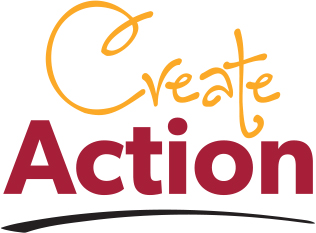
 As part of the Investment Readiness Program, SETSI delivered an incubator for 15 African-Canadian social entrepreneurs and we’re working together to bring these perspectives more strongly to the federal table, including co-presenting a Knowledge Event to staff at Employment and Social Development Canada about how the government can more effectively work with African-Canadian communities.
As part of the Investment Readiness Program, SETSI delivered an incubator for 15 African-Canadian social entrepreneurs and we’re working together to bring these perspectives more strongly to the federal table, including co-presenting a Knowledge Event to staff at Employment and Social Development Canada about how the government can more effectively work with African-Canadian communities. In Atlantic Canada, we launched
In Atlantic Canada, we launched 
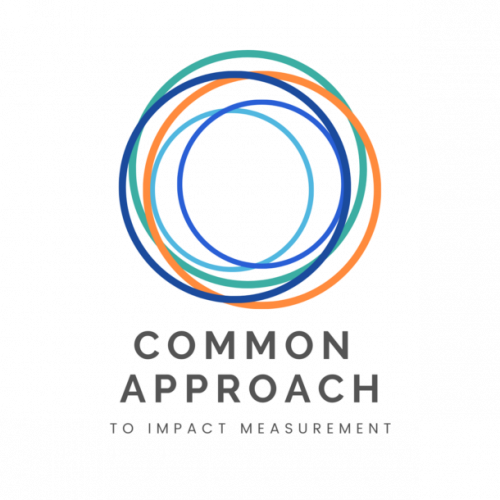
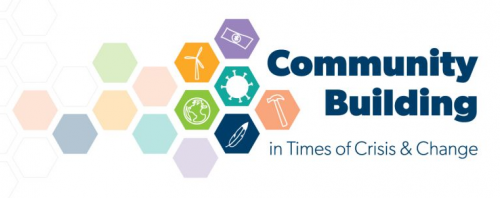 We continued developing our
We continued developing our 
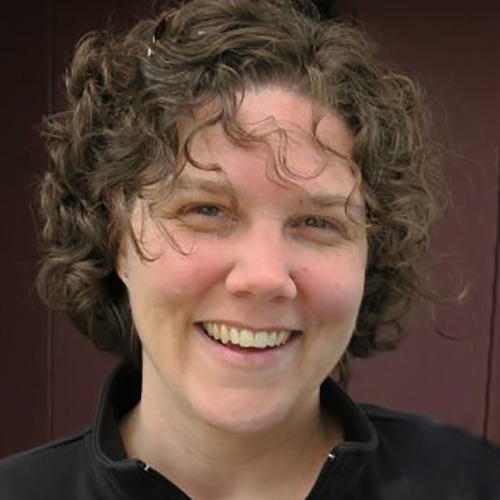
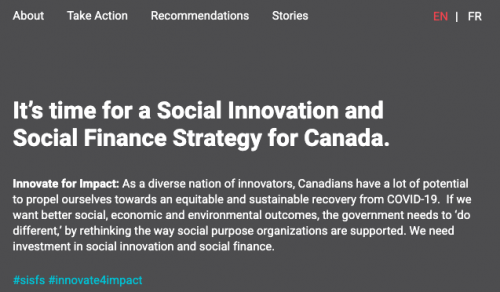 We organized a
We organized a  Starting any business is challenging, and co-ops are no different. As veteran co-op developer Russ Christianson observes: “Like any good business, a co-op requires an excellent business plan, sufficient start-up capital, and the tenacity of its founders. There will be long hours, many meetings, and low pay in the start-up phase.”
Starting any business is challenging, and co-ops are no different. As veteran co-op developer Russ Christianson observes: “Like any good business, a co-op requires an excellent business plan, sufficient start-up capital, and the tenacity of its founders. There will be long hours, many meetings, and low pay in the start-up phase.”
 e Canada Healthy Communities Initiative. The $31-million Canada Healthy Communities Initiative is building safer spaces and ensuring a higher quality of life for people across the country, by helping communities adapt to the challenges presented by COVID-19.
e Canada Healthy Communities Initiative. The $31-million Canada Healthy Communities Initiative is building safer spaces and ensuring a higher quality of life for people across the country, by helping communities adapt to the challenges presented by COVID-19. The recent federal budget renewed the Investment Readiness Program (IRP) for a second 2-year, $50 million term.
The recent federal budget renewed the Investment Readiness Program (IRP) for a second 2-year, $50 million term. 


